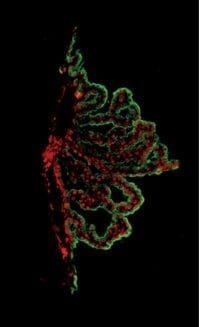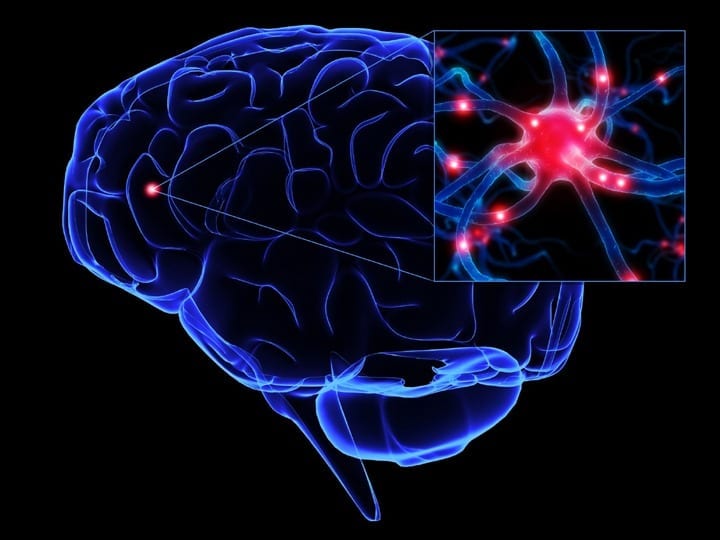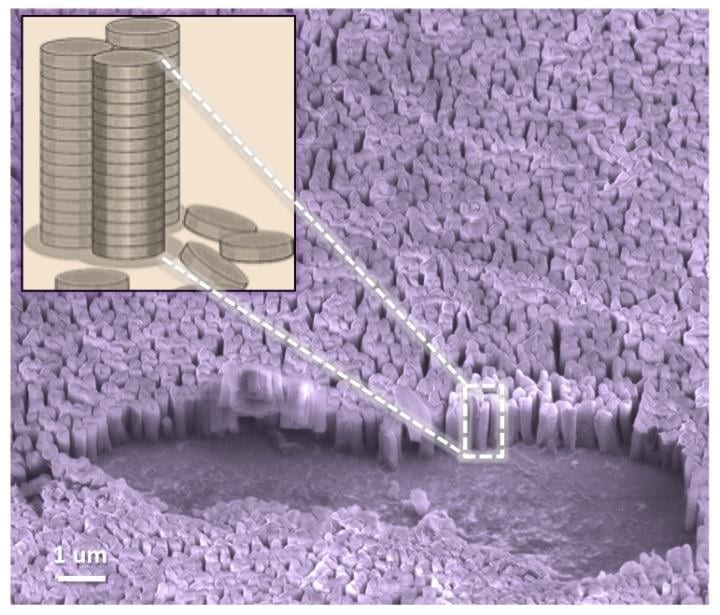
Weizmann Institute researchers suggest that the brain’s “immunological age” is what counts
How the brain ages is still largely an open question – in part because this organ is mostly insulated from direct contact with other systems in the body, including the blood and immune systems. In research that was recently published in Science, Weizmann Institute researchers Prof. Michal Schwartz of the Neurobiology Department and Dr. Ido Amit of Immunology Department found evidence of a unique “signature” that may be the “missing link” between cognitive decline and aging. The scientists believe that this discovery may lead, in the future, to treatments that can slow or reverse cognitive decline in older people.
Until a decade ago, scientific dogma held that the blood-brain barrier prevents the blood-borne immune cells from attacking and destroying brain tissue. Yet in a long series of studies, Schwartz’s group had shown that the immune system actually plays an important role both in healing the brain after injury and in maintaining the brain’s normal functioning. They have found that this brain-immune interaction occurs across a barrier that is actually a unique interface within the brain’s territory.
This interface, known as the choroid plexus, is found in each of the brain’s four ventricles, and it separates the blood from the cerebrospinal fluid. Schwartz: “The choroid plexus acts as a ‘remote control’ for the immune system to affect brain activity. Biochemical ‘danger’ signals released from the brain are sensed through this interface; in turn, blood-borne immune cells assist by communicating with the choroid plexus.This cross-talk is important for preserving cognitive abilities and promoting the generation of new brain cells.”
This finding led Schwartz and her group to suggest that cognitive decline over the years may be connected not only to one’s “chronological age” but also to one’s “immunological age,” that is, changes in immune function over time might contribute to changes in brain function – not necessarily in step with the count of one’s years.
The Latest on: Aging in the Brain
[google_news title=”” keyword=”Aging in the Brain” num_posts=”10″ blurb_length=”0″ show_thumb=”left”]
via Google News
The Latest on: Aging in the Brain
- Sandusky Co. YMCA receives grant to fund disease prevention, brain health programson April 30, 2024 at 1:31 pm
The $20,000 grant will allow the YMCA of Sandusky County to provide free access to the YMCA/CDC Diabetes Prevention Program and Rock Steady Boxing.
- Maintain Your Brain Fitness as You Age by Prioritizing These 6 Thingson April 30, 2024 at 11:52 am
Exercising your mind is just as important as your body. These are the top six things you should practice as you age to help keep your mind sharp.
- What Your Life Experiences Can Do for Your Brainon April 30, 2024 at 9:32 am
Findings from a 2017 study plus new data on brain aging show that learning can take place throughout life. Focus on your physical health and seeking out new experiences to keep your mind sharp, no ...
- Study: This Brain Training Resulted in Better Performance and Less Atrophy in the Brainon April 30, 2024 at 4:59 am
A new randomized controlled trial among older adults, with normal cognitive aging, showed that a specific type of cognitive training resulted in improved abilities at untrained cognitive tasks and ...
- Behavioral therapy against aging: Researchers study the effect of therapies on older dogson April 30, 2024 at 1:10 am
It is well known that getting plenty of exercise and mental training are important for a long and healthy life. But which is more effective? Do the tasks develop abilities that go beyond them?
- A Peek Inside the Brains of ‘Super-Agers’on April 29, 2024 at 10:07 am
A paper published Monday in the Journal of Neuroscience helps shed light on what’s so special about the brains of super-agers. The biggest takeaway, in combination with a companion study that came out ...
- Does 'Brain Training' Really Improve Cognition and Forestall Cognitive Decline?on April 29, 2024 at 12:32 am
Some companies claimed that engaging in "brain games" can improve cognition or stave off cognitive decline. What's the evidence and do crosswords and Sudoku count?
- 8 ways to keep your brain healthy, from doing crossword puzzles to limiting alcoholon April 26, 2024 at 1:35 pm
Brain health is something people of all ages should be thinking about, say experts. Here are some smart steps you can take to do just that.
- UAB opens Brain Aging and Memory Hub to address cognitive brain health and memory disorders in Alabamaon April 24, 2024 at 9:37 am
The new Brain Aging and Memory Hub will house the UAB Divisions of Neuropsychology and Cognitive and Behavioral Neurology, as well as the Alzheimer’s Disease Center and the Evelyn F. McKnight Brain ...
- When It’s Time for an Aging Driver to Hit the Brakeson April 19, 2024 at 7:29 am
The “car key conversation” can be painful for families to navigate. Experts say there are ways to have it with empathy and care.
via Bing News











